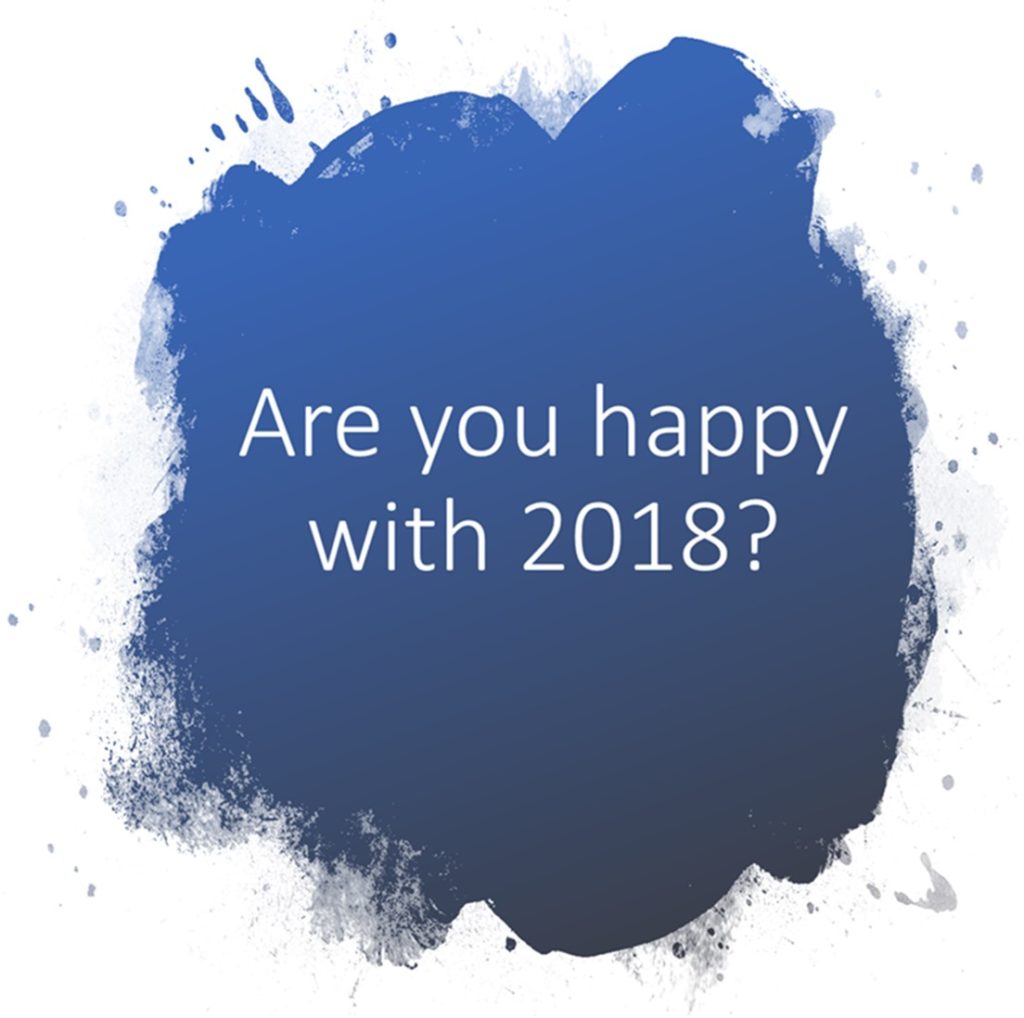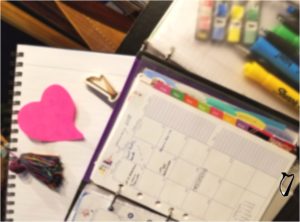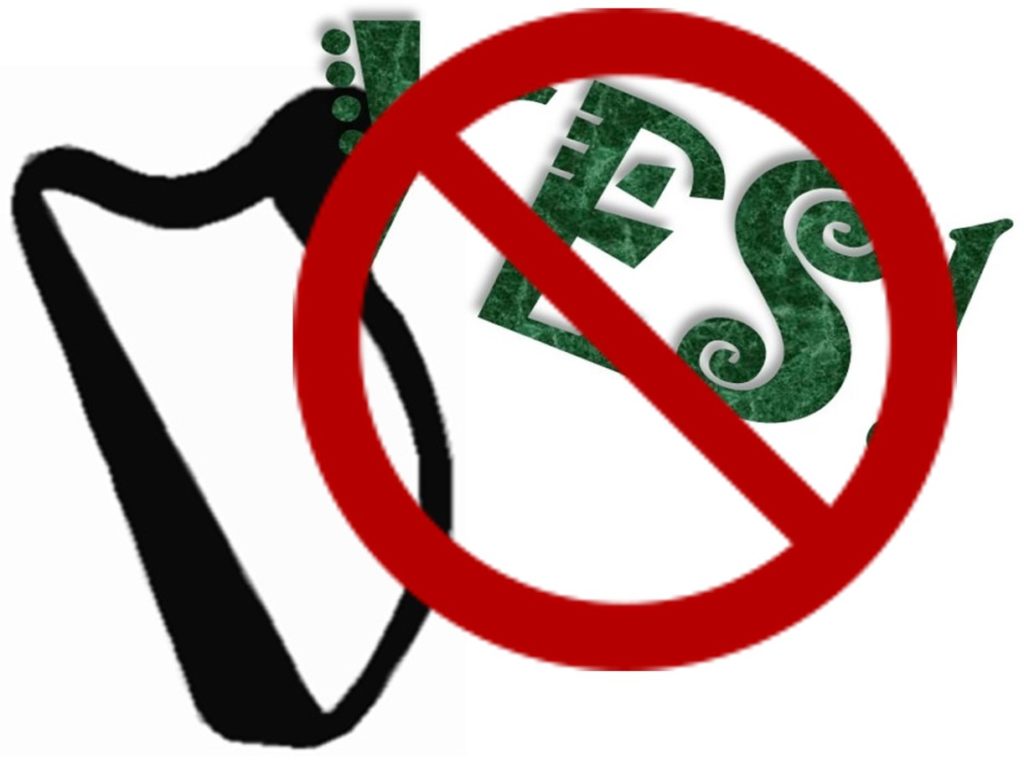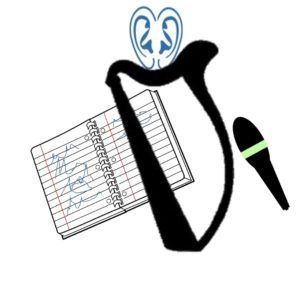Some people have a bucket list. Of course, even more haven’t made one, but they probably have things they’d like to have accomplished by the time they’re done on the coil mortal.
A bucket list is a compilation of all the things a person would like to have accomplished, completed, or dreamt of. It is (yet another) goals list, pure and simple.
You might think a Bucket List is a macabre thing to keep. After all, most people think of it as a list of all the things you may (or might not) have accomplished in your entire life. Ok, that would be macabre.
But what if you instead think of it as a gentle reminder of what you think is interesting, curious, important, and/or worth pursuing? If you look at it that way, it could be sort of interesting – and a little goading. And probably worth keeping for quick and frequent reference. For guidance. And as a reminder to keep your head up (metaphorically…. although you should also do that physically while you’re playing!).
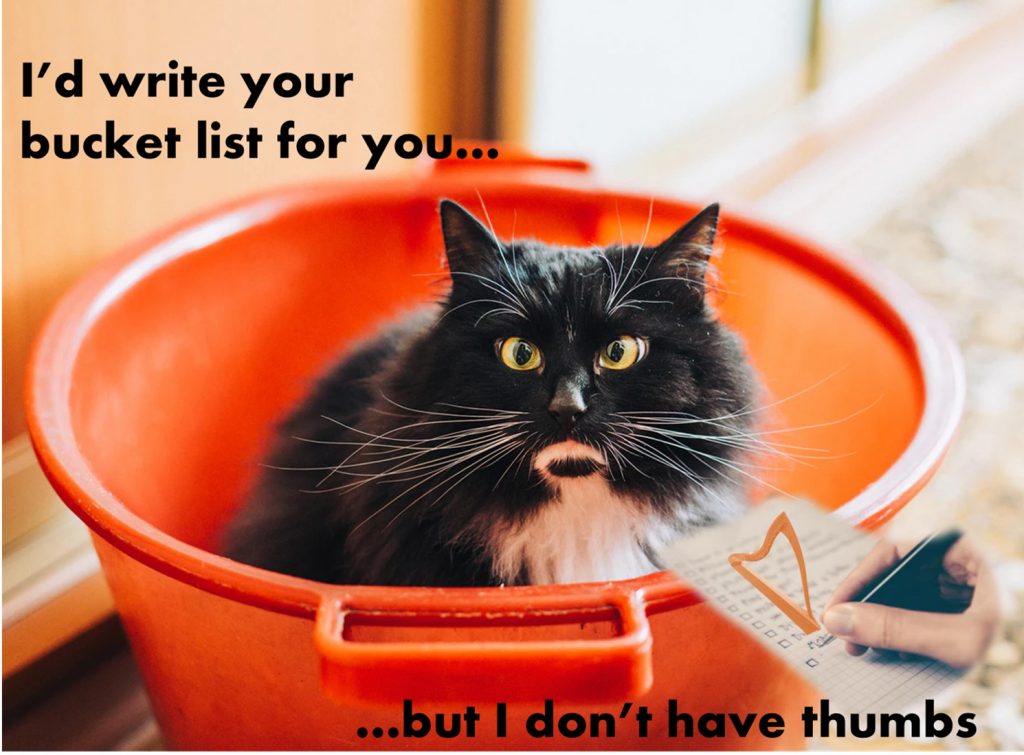 Apparently loads of people have lists that include travel around the world, run a marathon, be a better person, write a novel, or pursue a passion.
Apparently loads of people have lists that include travel around the world, run a marathon, be a better person, write a novel, or pursue a passion.
BUT – YOU ALREADY HAVE A PASSION. You’re no desultory harper!
What sort of things might you put on the list? Well, that’s going to be fairly personal. After all, it will be all the things you hope you will do before you are no longer able to play the harp. I have my own ideas (although, to be fair, I’ve been checking mine off as fast as I can!).
How, you might ask would you go about making your bucket list? Well, it’ll take a little time and effort, but it’ll be worth it! First, note that you might be making more than one list. After all, once you start thinking about it, you might be making a life list, a harp list, a family list, etc. And that’s ok – you can have multiple lists!
I’d suggest making the list in your practice journal. You have to keep it somewhere, so why not there? That way you’ll see it each time you sit to practice – and be reminded of some of the reasons you’re about to practice…
It’s your list – you can put anything you like on it. Secret fantasies, deepest desires, put ‘em down. You’ll never know when you’ll have the chance to check one of them off, but you’ll be ready for the opportunity if you know you want to (you won’t have to think about it when it happens – you’ll be ready!).
Of course, also put down stuff you know you can do if you try. Learn that piece you admire. Write down that tune that you hear in your head. Ask that well-known teacher for a lesson. You have nothing to lose!
Then there’s the harder to define stuff – what do you want your harp legacy to be. Don’t think you have one? Oh, you do, you just might not have thought about it before. Do you want to be sure that you have actually played for your friends? Wish you would sit a Master Class? Want to participate in that fabulous workshop everyone’s always talking about? While these things might be more challenging, you can get there. And writing them on your list will remind you to keep at it.
Maybe the hardest thing about generating your bucket list is to prioritize it. What’s the most important to you? What will take you the most time (or require new skills or significantly more practice)? Does anyone in your life need to have an input (whether they be an audience member or a travel companion or some other adjunct to your thinking)? You’ll need to factor that in. Also, is there any intersection of your harp and your life bucket lists? Maybe you can take your harp with you as you travel around the world? Always wanted to go to Scotland (always a good idea) – maybe there’s a workshop you plan around (or you could join us sometime in the future!). Two birds, meet one stone!
What does not belong on your Harp Bucket List? ANYTHING YOU ARE NOT INTERESTED IN! Don’t want to play in an ensemble? Don’t. Don’t want to play orchestra parts? Don’t even write it down! Never wanted to learn that “must do” repertoire? Then DON’T!
You’re capturing what YOU want to do with your harp life. Don’t worry about what anyone else thinks. Maybe you’re not quite ready to do some of it, that’s ok. You’ve written it down so you can be reminded of what you want to be so you can keep acquiring the skills or practice you need to be able to get there. And remember – it’s your list. Share it with others if you like, but you don’t have to.
When you complete something on your list, savor that!
Make your bucket list – so you can do all the things you want while you are able. Live your harp life! What might you put on your bucket list? Got a good idea? Want to share it in the comments?



